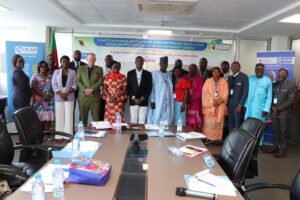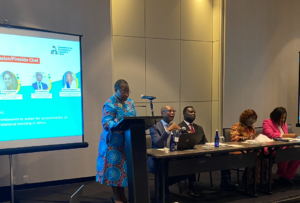The calls were made on Wednesday, 19th of June 2024 in Yaounde, during an official ceremony to commemorate the 34th edition of the Day of the African Child.
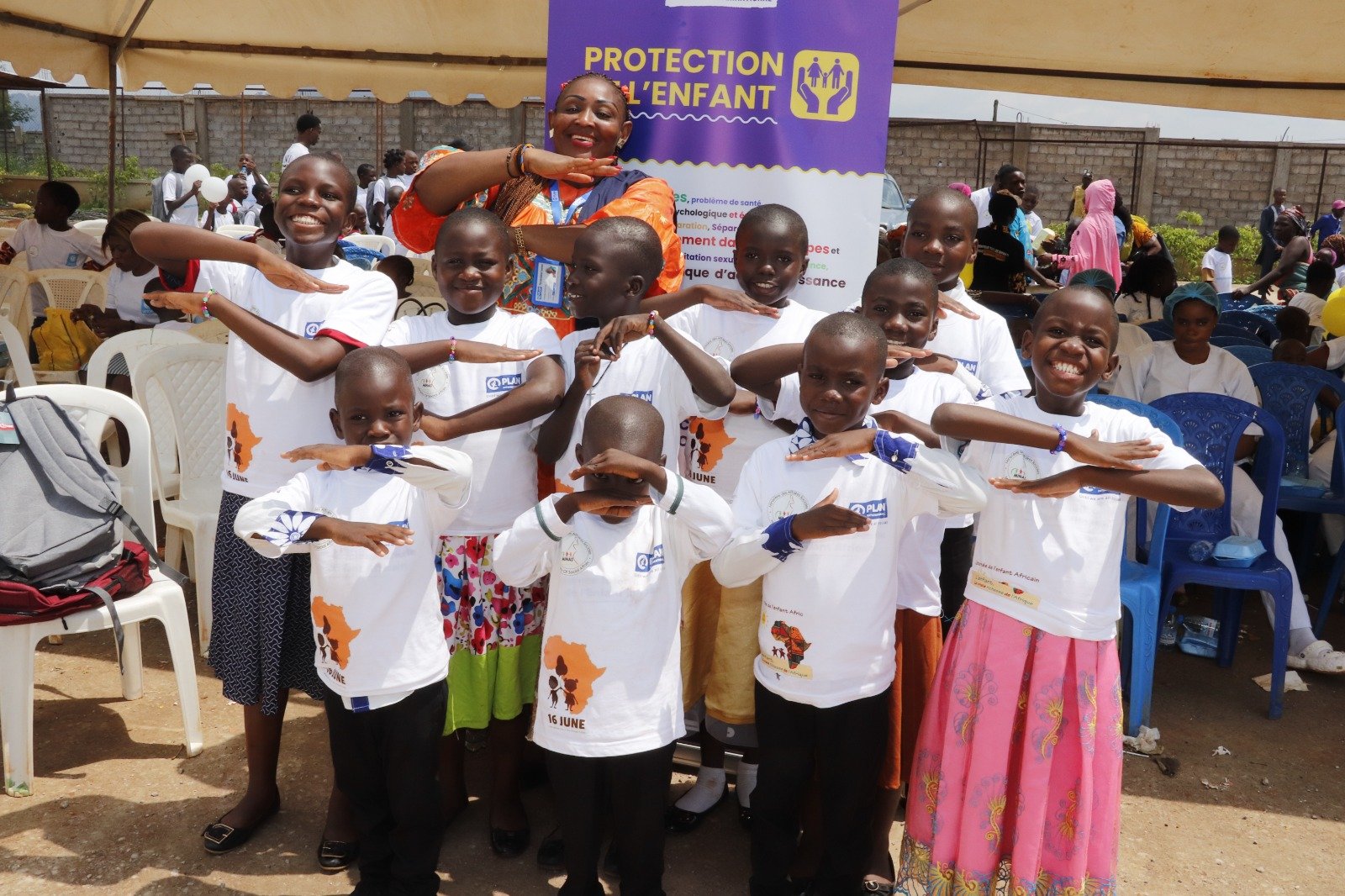
Tackling inequalities & promoting education
A 13-years-old female student in the class of “5eme” in the francophone sub-system of education was given the lead as spokerspon of children during the celebration that took place on June 19, 2024, at the esplanade of the Yaounde 7 council.
Bwame Elisabeth Charlotte just like many children who were convened to the official ceremony of the 34th edition of the Day of the African Child, raised her voice to amplify calls for free and inclusive education for all children as well as the need to preserve peace and stability which are key to development.
As a junior parliamentarian for the 2023 session, Elisabeth Charlotte, actively participated in field activities of the Yaounde 7 sub-division, reason why she took advantage of the ceremony to unveil a chaplet of grievances that are impeding the education of young boys and girls.
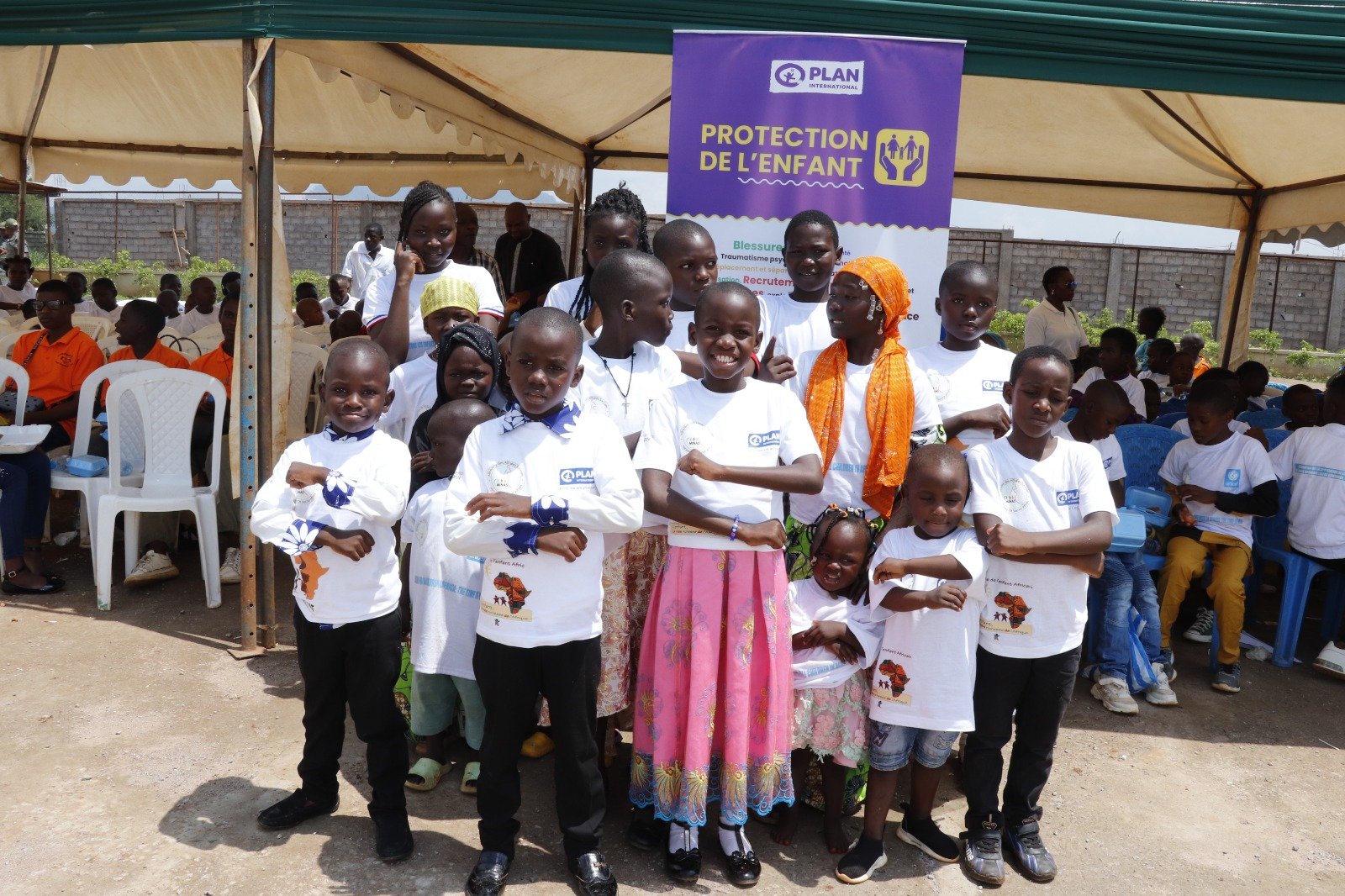
In her speech, the young Member of parliament applauded the tremendous actions carried so far by the government to improve the education of children. She cited the construction of new school edifices, the elaboration of curricula, the recruitment of teachers, the fight against inequalities in several spheres of society, and the protection of children against violence and harassment on school campuses just to name a few.
Yet, Elisabeth Charlotte said this year’s celebration grants an opportunity to focus on some issues still hindering the education of children in Cameroon such as the low percentage of children having access to education in crises and enclaved zones of the country like in the Far-North, East, North-West and South-West regions; the need to increase the number of specialized teaching schools with adequate didactic materials for children living with disabilities and vulnerable groups.
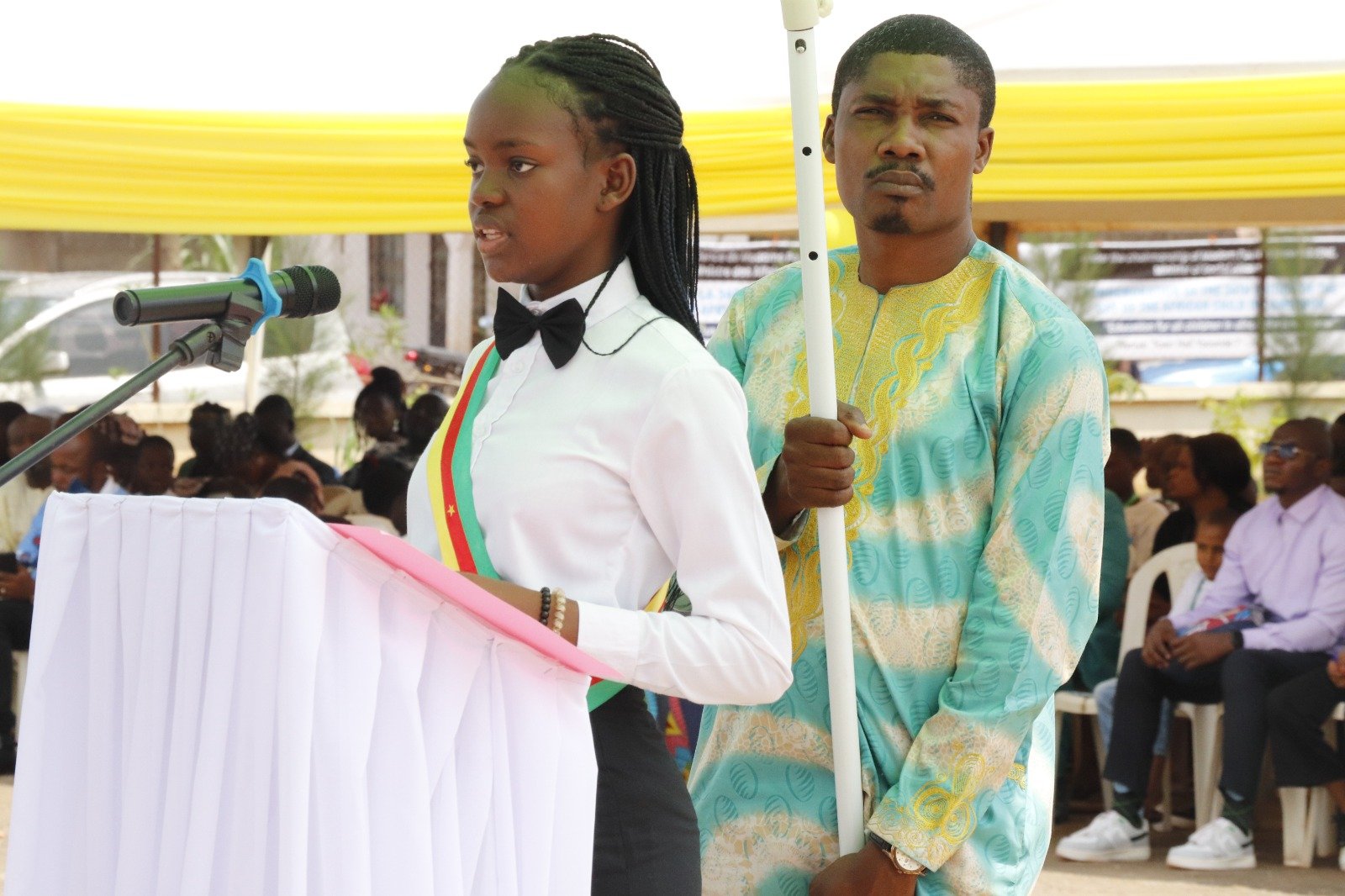
The junior member of parliament called on all government officials, development partners, parliamentarians, mayors, civil society actors, and the entire population to act now for an inclusive society where children living with disabilities and vulnerable communities could fully participate in the achievement of sustainable development goals. She reiterated that the children of today are adults of tomorrow.
In the same vein, the Deputy Representative of UNICEF in Cameroon saluted the multiple efforts undertaken by the government to pursue education in crisis zones though she made mention of numerous challenges that are still to be braced up.
Juliette Haenne, UNICEF’s Deputy Representative outlined that, over the past 10 years, several strides have been recorded in the pre-education sector with the enrollment of children aged between 6 to 11 years.
“We all know that access to education is a fundamental right and plays a key role in development. We also know that school and education protect children notably the girlchild from unwanted pregnancies, early and forceful marriages as well as child labour.” She said.
She emphasized the need to invest in the future of children and this through their education.
The occasion was therefore well seized by UNICEF’s spokesperson to plead for an increase in the budget allocated to education in Cameroon.
“The budget allocated to education must be increased to reach the international standard of 20% and in this budget, primary education must be reinforced. It is not just about building schools but also to equip schools with toilets to maintain more girls in school…” Juliette Haenne added.
Plan International an advocate of children’s rights
As a humanitarian and non-profit organization that advances children’s rights and equality for girls, Plan International is under the spotlight of the Cameroonian month of the Child with a series of activities.
During the official ceremony of the DAC that was postponed to June 19, Plan International’s office in Cameroon was highly represented by the Director of programs, Yenji Mairou, who took the floor on behalf of Mr. Mohamed Bah, Country Director.
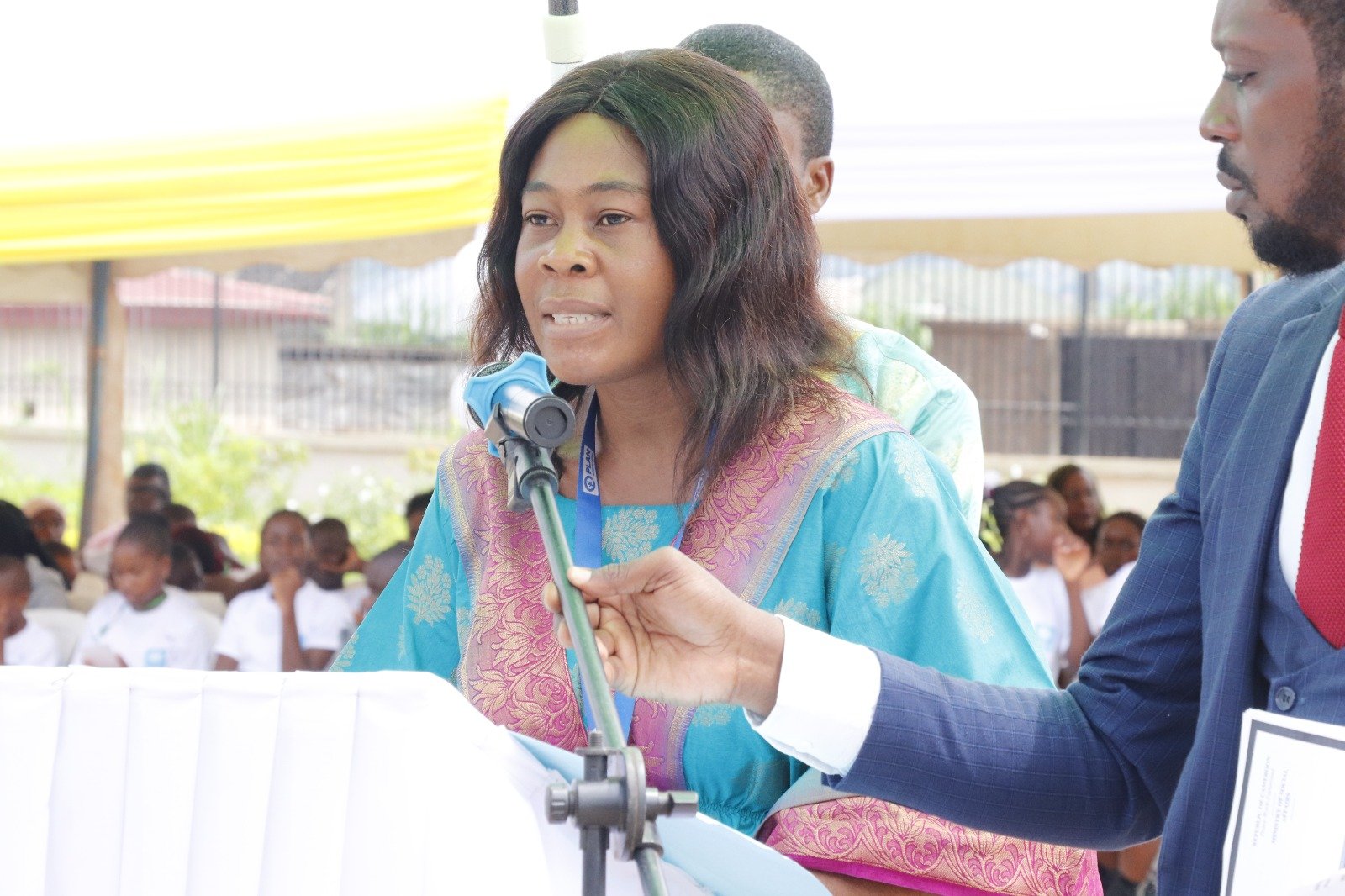
In her introductory note, she first thanked the Ministry of Social Affairs for associating Plan International Cameroon with the various activities that have been organized nationwide.
The Director of programs at PIC said the celebration of the Day of the African Child every June 16, is to remind us of a common cause, that of children/students who were killed on June 16, 1976, in Soweto, South Africa while fighting for their rights to education.
Mrs. Yenji Mairou said: “The commemoration of the Day of the African Child is aimed at recalling the commitment of our nations to protect the rights, well-being, and future of our children, who are undoubtedly our continent’s most precious resource.”
She recalled the commitment of this leading humanitarian organization that was put in place by a journalist in 1937.
“Plan International Cameroon remains committed to equal opportunities, access to education, and the well-being of children and young people. Our proximity to communities allows us to better understand their needs and work together to ensure that every Cameroonian child has access to quality education; that the chances of going to school be given to both girls and boys.” Mrs. Yenji narrated.
Government’s Engagement
As underscored, this year’s theme offers the opportunity to galvanize efforts at all levels for the right to education of children in Africa, including those in Cameroon, and to take significant measures likely to have a positive impact on the realities experienced by children and their access to education.
Social Affairs Minister, Pauline Irene Nguene who chaired the official celebration underscored the need to protect all children whatever the state and category to which they belong.

She castigated the poor treatment inflicted on vulnerable children and those with disabilities that is often observed in our society.
She said tackling inequalities begins with the notion of: “Leaving No One Behind.”
Social Affairs Patroness pointed out the numerous inclusive policies put in place by the government of Cameroon and the fact that several specialized educative centers are been set up to curb the needs of children living with disabilities.
The Minister outlined the fact that beyond the commemoration of the DAC, African States just like Cameroon are concerned about the well-being of their children and therefore the future of the continent. The DAC is a day dedicated to reflections on the situation of violation of the rights of the child in a bid to take appropriate measures to further ensure their well-being.
“It is, in particular, an opportunity to assess the commitments made by the different Member States, such as Cameroon, in favour of the implementation of Aspiration 6 of the Agenda 2040.” The Minister said.
According to this Agenda of the Africa Union, “every child must benefit fully from an education of quality” and recommendations that were made during the celebration of the Day of the African Child (DAC) in 2014 relating, among other things to the questions of the development of a legislative framework to guarantee free and compulsory primary education and ensure the achievement of preschool and secondary education; collection of data on out of school children; identifying the reasons for exclusion and specifying measures to ensure that all children are in school, including marginalized children; the development of indicators on quality education and the undertaking of a quality assessment just to name these few.
Significance of the theme
The theme chosen by the African Committee of Experts on the Rights and Welfare of the Child for the celebration of the 34th edition of the Day of the African Child is “Education for all Children: The Time Has Come”.
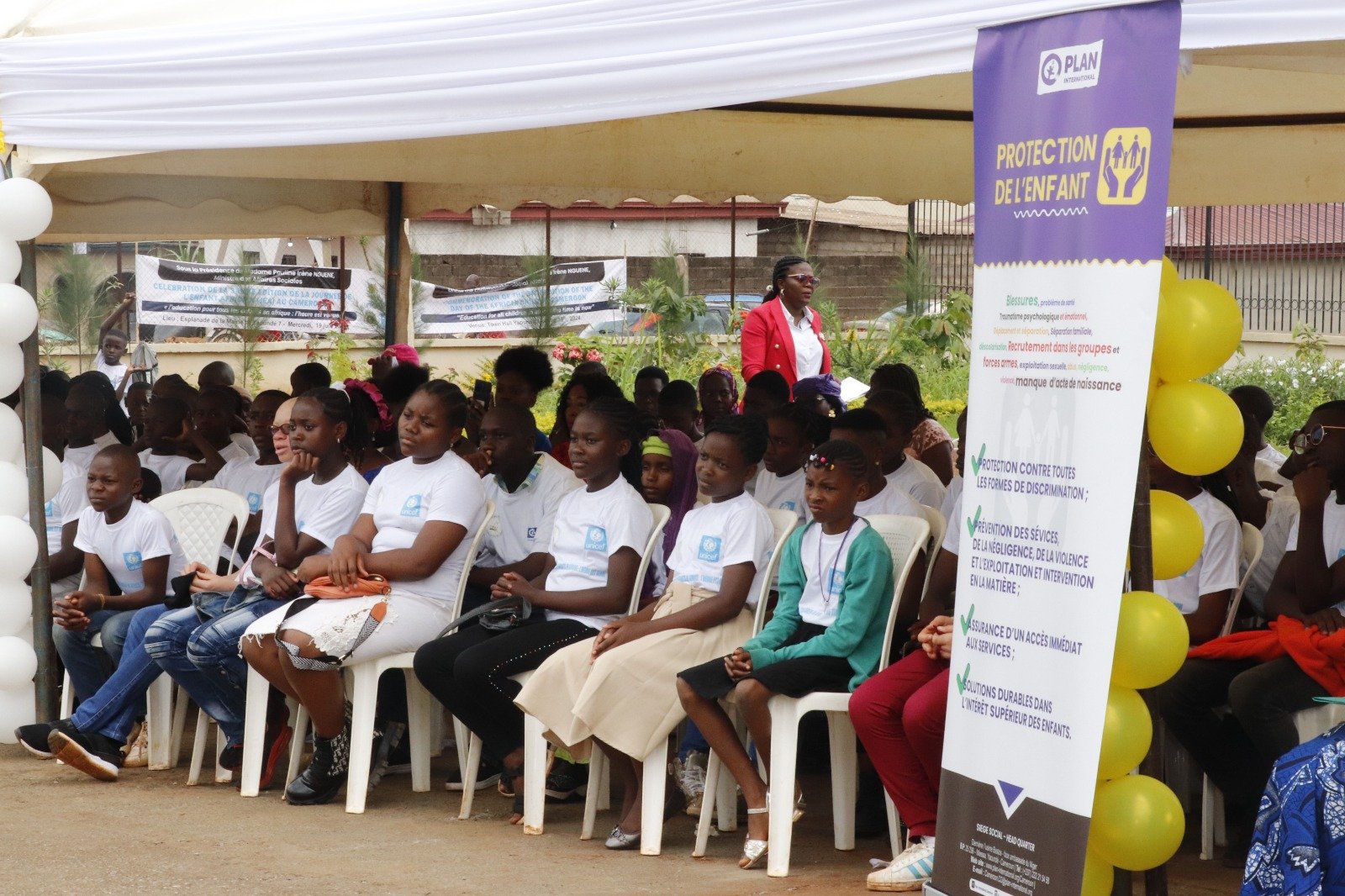
This year’s theme is relevant with two main components: education for all and the time is now.
Talking of the education for all aspect is essential, because Article 11, paragraph 1, of the African Charter on the Rights and Welfare of the Child, stipulates that “every child has the right to education”. Education is a right for all children in Africa, regardless of where they live, race, parental status, disability, gender, or any other status.
As concerns the second component of the theme, it has to do with the role and impact of education on children’s development, as well as solving various emerging problems.
Elise Kenimbeni



